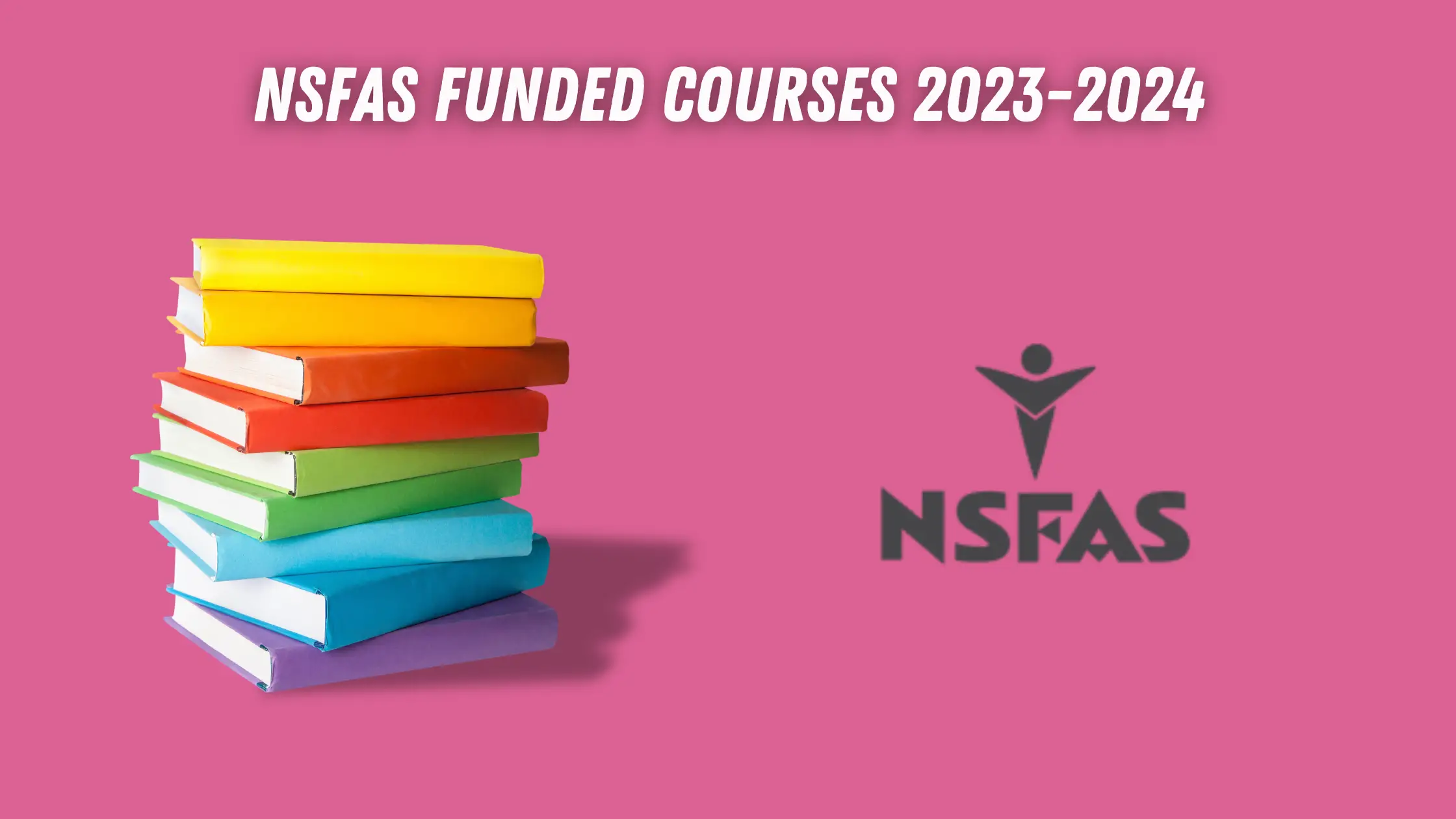In South Africa, the National Student Financial Aid Scheme (NSFAS) plays a pivotal role in education by offering funding to qualifying students. This article will help to provide a deeper understanding of the NSFAS funding criteria and the range of courses funded.
NSFAS Funding Criteria
The NSFAS is dedicated towards providing funding to university students pursuing their undergraduate and postgraduate degrees, in line with considerations of financial need and academic recommendation. Universities under the purview of NSFAS include 26 public universities recognized by the Department of Higher Education and Training (DHET). The spectrum of subjects these universities offer, spanning from the Humanities to Applied Sciences, are by extension, covered by NSFAS funding.
Moreover, NSFAS extends its funding towards students eyeing Technical and Vocational Education and Training (TVET). Subjects such as Business Management Studies, Education & Development, Engineering and Primary Agriculture fall under this category, offering a well-rounded approach towards the sphere of vocational training.
Courses Funded by NSFAS In 2023-2024
The NSFAS also extends financial support to vocational and skills training spheres. This includes the National Certificate (Vocational) programs and Report 191 programs offered at Technical and Vocational Education and Training (TVET) colleges.
NSFAS will fund a wide range of courses in 2023-2024, including:
- Education: Bachelor of Education (BEd), Diploma in Education (Dip Ed), Higher Certificate in Education (HCE)
- Engineering: Bachelor of Engineering (BEng), Diploma in Engineering (Dip Eng), Higher Certificate in Engineering (HCE)
- Health Sciences: Bachelor of Medicine and Bachelor of Surgery (MBChB), Bachelor of Nursing (BNurs), Bachelor of Pharmacy (BPharm), Diploma in Nursing (Dip Nurs), Diploma in Pharmacy (Dip Pharm), Higher Certificate in Nursing (HCE Nurs), Higher Certificate in Pharmacy (HCE Pharm)
- Information and Communication Technology (ICT): Bachelor of Science in Computer Science (BSc CS), Bachelor of Science in Information Technology (BSc IT), Diploma in Computer Science (Dip CS), Diploma in Information Technology (Dip IT), Higher Certificate in Computer Science (HCE CS), Higher Certificate in Information Technology (HCE IT)
- Business and Management: Bachelor of Business Administration (BBA), Bachelor of Commerce (BCom), Diploma in Business Administration (Dip BA), Diploma in Commerce (Dip Com), Higher Certificate in Business Administration (HCE BA), Higher Certificate in Commerce (HCE Com)
- Humanities and Social Sciences: Bachelor of Arts (BA), Bachelor of Social Sciences (BSS), Diploma in Arts (Dip Arts), Diploma in Social Sciences (Dip Soc Sci), Higher Certificate in Arts (HCE Arts), Higher Certificate in Social Sciences (HCE Soc Sci)
NSFAS also funds a number of other courses, including those in the fields of agriculture, agriculture science, biotechnology, creative arts, hospitality, law, natural sciences, and public administration.
Additionally, NSFAS will no longer fund postgraduate courses in the 2023-2024 academic year.
Future Direction of NSFAS Course Funding
Analyzing trends for the National Student Financial Aid Scheme (NSFAS), it is imperative to underline two dominant paradigms shifting the landscape of South Africa’s higher education funding. The first is the possible expansion of NSFAS to increasingly address fields deemed crucial for South Africa’s advancement in a global context.
As sectors like technology, artificial intelligence, and sustainable development acquire greater emphasis, NSFAS may see incremental demand to fund corresponding course disciplines, reflecting the country’s strategic intent for knowledge-centric economic growth.
The second trend appears to be an augmented focus on quality over quantity, promoting allocation of resources to maximize impact. NSFAS seems inclined towards stringent monitoring and evaluation mechanisms, ensuring funds support education that meets a certain threshold of quality and ethical standards.
Fund recipients may therefore see themselves subjected to regular assessments, linking continued funding to performance. This is a promising direction, considering the more nuanced dividends of this approach – incentivizing effort from the students while driving institutions towards boosting the quality of their pedagogical models.
Moreover, the digital world could pose a large focus for NSFAS funding. Also, with a view to making higher education more accessible, NSFAS could potentially cover costs associated with digital devices, internet connectivity and possibly even software necessary for academic endeavors, especially under circumstances led by unforeseen events like the COVID-19 pandemic.
Conclusion
With the insight gathered on the NSFAS funding scope, impact, and future projections, it can be discerned that the scheme plays an integral part in shaping South Africa’s societal and economic landscape. It not only promises bright futures for individuals but also contributes significantly to national progress by populating critical sectors of the economy with skilled personnel.
Moving forward, it will be interesting to observe the evolution of the NSFAS funding direction in alignment with changes in higher education dynamics and market requirements. In all, the NSFAS funding scheme establishes an encouraging landscape for South African higher education, facilitating access to quality education for deserving individuals and contributing to societal development.


